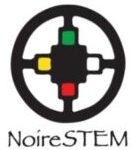Who am I?: Black Science Identity Development
All individuals have multiple identities. As students consider a future career in biomedical science, as well as their educational pathways, one salient factor involved in their decisions is whether or not they can align their perception of the career/field of interest with one or more of their identities. Possessing a strong science identity is one of the reliable predictors of science success and progressing into a science-related career field. The session will begin with students completing a validated science identity instrument to gauge how they perceive themselves as a scientist. This session will promote students’ science identity development by exposing them to non-stereotypical scientists (specifically in biomedical research), engaging them in tasks performed by members of the science community, and acclimating them to the language of science. Additionally, students will engage in short-activities that involve building skills or habits of mind that reinforce students’ identity as a scientist.
Critical Race Growth Mindset
There are two primary mindsets that guide how individuals navigate life: growth and fixed. According to Carol Dweck, a growth mindset involves the belief that one’s basic qualities and abilities can be cultivated and strengthened through one’s efforts. Conversely, individuals with a fixed mindset believe that abilities and intelligence are innate and unchangeable. Mindset beliefs play a role in students’ academic persistence and performance. Utilizing a critical-race, culturally-relevant approach to Growth Mindset development, this workshop is culturally appropriate for African American/Black, Hispanic/LatinX, and Native American students.
By the end of this training, students will be able to identify if they have adopted more of a fixed or growth mindset regarding their ability to learn STEM concepts. Students will complete a short Growth Mindset Scale to identify these mindset beliefs. This Growth Mindset workshop is unique from traditional workshops as such workshops do not take into consideration how students from stigmatized and marginalized social identity groups (i.e. race, gender, class, etc) experience stress when asked to perform challenging tasks that converge with known stereotypes or biases. Therefore, this session will provide students with strategies to mitigate and manage stereotype threat, which in turn, will promote a stronger growth mindset and resilience.
Metacognition
In order for a student to be an effective learner, he/she must not only develop skills and strategies but also develop the ability to assess the effectiveness of the strategies and the quality of their skills. The ability to assess and modify their approaches as they engage in complex tasks involves an important process called metacognition. This workshop will introduce students to metacognition and assist them with developing strategies to become metacognitive learners. During the first part of the session, participants will complete the Metacognitive Awareness Inventory (MAI) to become more aware of how they function as learners. The second part of the session will introduce students to strategies that will help them to become stronger metacognitive learners.
Science Self-Efficacy
Science self-efficacy, or a belief in one’s capacity to successfully complete a science related task, has been consistently identified as a key factor implicated in students’ success in science. In turn, students who possess a high science self-efficacy are more likely to be engaged in science classes, as well as endorse a desire to continue into science careers. In this session, students will evaluate their science self-efficacy using a validated science self-efficacy instrument. They will also explore the factors and racialized experiences, such as microaggressions and stereotypes, that have impacted their belief of what they are capable of achieving in science. Students will learn and practice intervention approaches that address how to concurrently reduce anxiety and improve science self-efficacy.
Cultural and Environmental Components
This session will help students understand the cultural underpinnings of an organizations’ identity including cultural practices and the links between organizational culture and identity. Students will learn how to navigate an organization’s environment and develop skills to identify and overcome cultural incongruence.
Professional Development Coaching
Application Components
In order to develop a successful application, students must express their strengths, positive attributes, and desire to secure the position through strong written and oral communication. In this session, students will understand how admission committees use tools such as resumes, cover letters, personal statements, and letters of recommendation to learn valuable information about a candidate prior to face-to-face interactions. Moreover, students will focus on developing these items over multiple drafts using helpful critiques from instructor and peer reviews.
Interviewing & Networking
The interview is a key component of all applications. A successful interview involves the use of strong oral communication skills and the ability to interact with others through a variety of networking platforms including face-to-face, group interviews, and online interviewing. Therefore, preparation for the interview should be taken just as seriously as preparation of the written application. This session will introduce students to the purpose of interviewing and teach the critical skills necessary to participate in an effective interview. Students will learn to employ the STAR interview model in preparation for success in behavioral interviews.
Branding Yourself
The way students present themselves to the world can greatly impact their success in professional environments as well as their personal relationships. Therefore, focusing on one’s personal brand is very important. This session will allow students to gain an understanding of what personal branding entails and how to develop a brand that is appropriate for the professional world, while maintaining a healthy self image. Students will work with the facilitator to discuss the various components of branding and identify current habits that will support the image they wish to portray, and unflattering habits that will negatively impact their brand.
